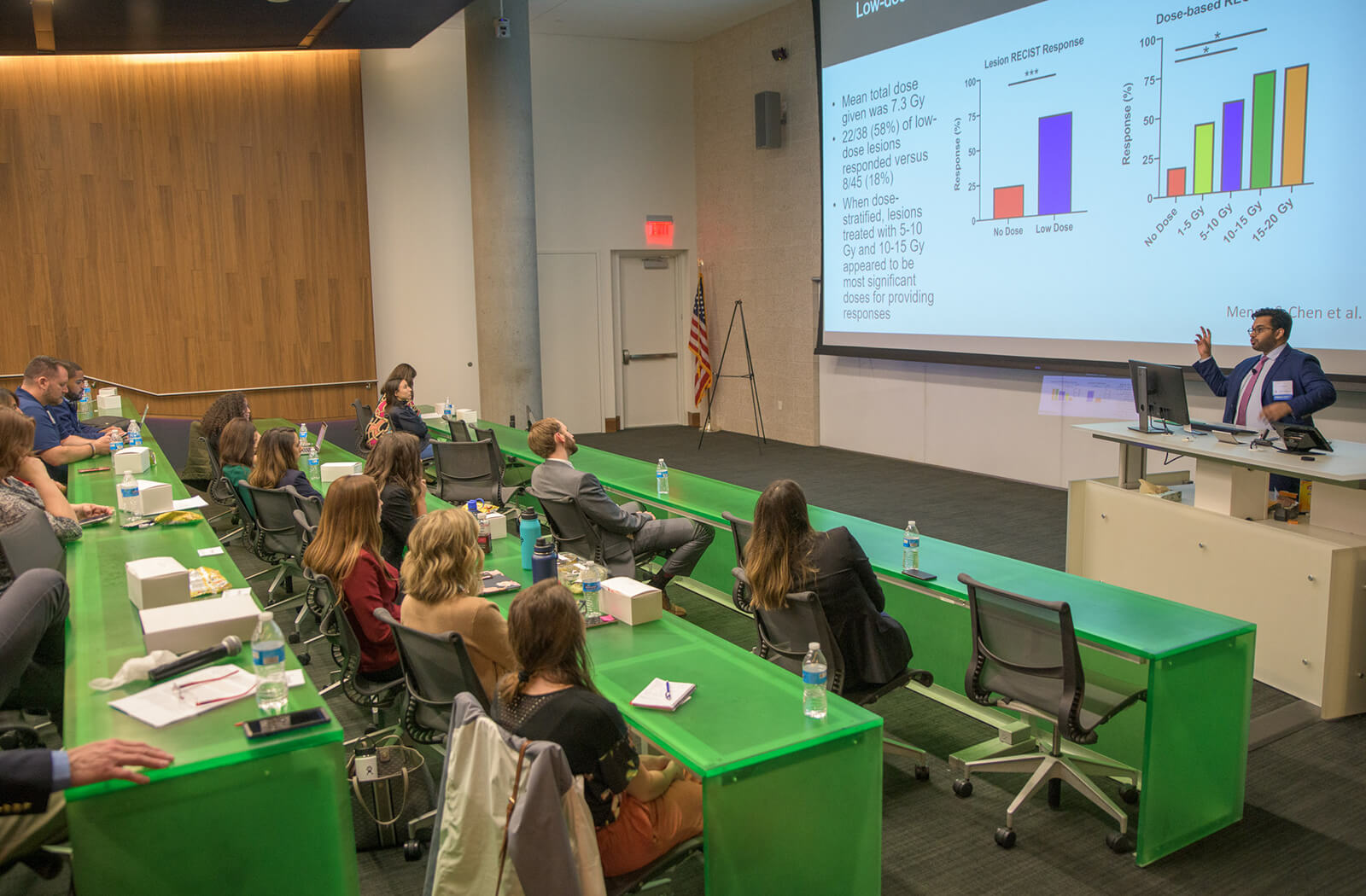
Scholarly Project Profile: Hari Menon

Low doses of radiation may considerably improve response rates in tumors of patients with metastatic stage IV cancer, according to research conducted by fourth-year medical student Hari Menon.

“We initially saw this result in one case and thought this may just be an isolated event,” Menon said. “However, after reviewing more than 200 patient cases in three clinical trials, it seems that low-dose radiation has a positive effect on tumor size.”
When comparing tumors that received no radiation to those that received low-dose radiation, Menon found the response rates, which were based on pre-determined clinical guidelines, were 18 percent versus 58 percent, respectively.
“I became interested in immunotherapy and radiation synergism through my mentor at MD Anderson Cancer Center, James Welsh, MD,” Menon said. “Immunotherapy has certainly changed our concept of cancer, but hasn’t been as effective as we had hoped. Using radiation to improve results really drew me into Dr. Welsh’s lab research.”
Menon took a research year to work at MD Anderson Cancer Center in Houston with Dr. Welsh, who focuses on combining immunotherapy with radiation. Menon worked on pre-clinical and clinical projects, including several clinical trials. He published more than 20 papers in various journals and has abstracts accepted for presentations at national conferences. One of the projects eventually became his scholarly project and was published in the Journal for ImmunoTherapy of Cancer in September 2019.
Menon said he hopes to specialize in radiation oncology and eventually work at an academic center where he can see patients and conduct research.
“I find radiation oncology to be incredibly rewarding, as we are in a unique position to both completely cure patients of their cancer and help those with pain and palliative needs,” Menon said. “As a student who has had loved ones with cancer, I hope to continue serving this patient population for years to come.”
Menon said his scholarly project allowed him to see how retrospective and pre-clinical data can be applied to patient care.
“I want to thank all of my mentors, including the scholarly project team, for their support,” Menon said. “The scholarly project is one of the best components of our education and continues to demonstrate the environment this school fosters.”
About the College
Founded in 2007, the University of Arizona College of Medicine – Phoenix inspires and trains exemplary physicians, scientists and leaders to advance its core missions in education, research, clinical care and service to communities across Arizona. The college’s strength lies in our collaborations and partnerships with clinical affiliates, community organizations and industry sponsors. With our primary affiliate, Banner Health, we are recognized as the premier academic medical center in Phoenix. As an anchor institution of the Phoenix Bioscience Core, the college is home to signature research programs in neurosciences, cardiopulmonary diseases, immunology, informatics and metabolism. These focus areas uniquely position us to drive biomedical research and bolster economic development in the region.
As an urban institution with strong roots in rural and tribal health, the college has graduated more than 1,000 physicians and matriculates 130 students each year. Greater than 60% of matriculating students are from Arizona and many continue training at our GME sponsored residency programs, ultimately pursuing local academic and community-based opportunities. While our traditional four-year program continues to thrive, we will launch our recently approved accelerated three-year medical student curriculum with exclusive focus on primary care. This program is designed to further enhance workforce retention needs across Arizona.
The college has embarked on our strategic plan for 2025 to 2030. Learn more.